Submitted by WA Contents
CHYBIK + KRISTOF completes renovation of brutalist Zvonarka Central Bus Terminal in Brno
Czech Republic Architecture News - May 06, 2021 - 15:51 6961 views
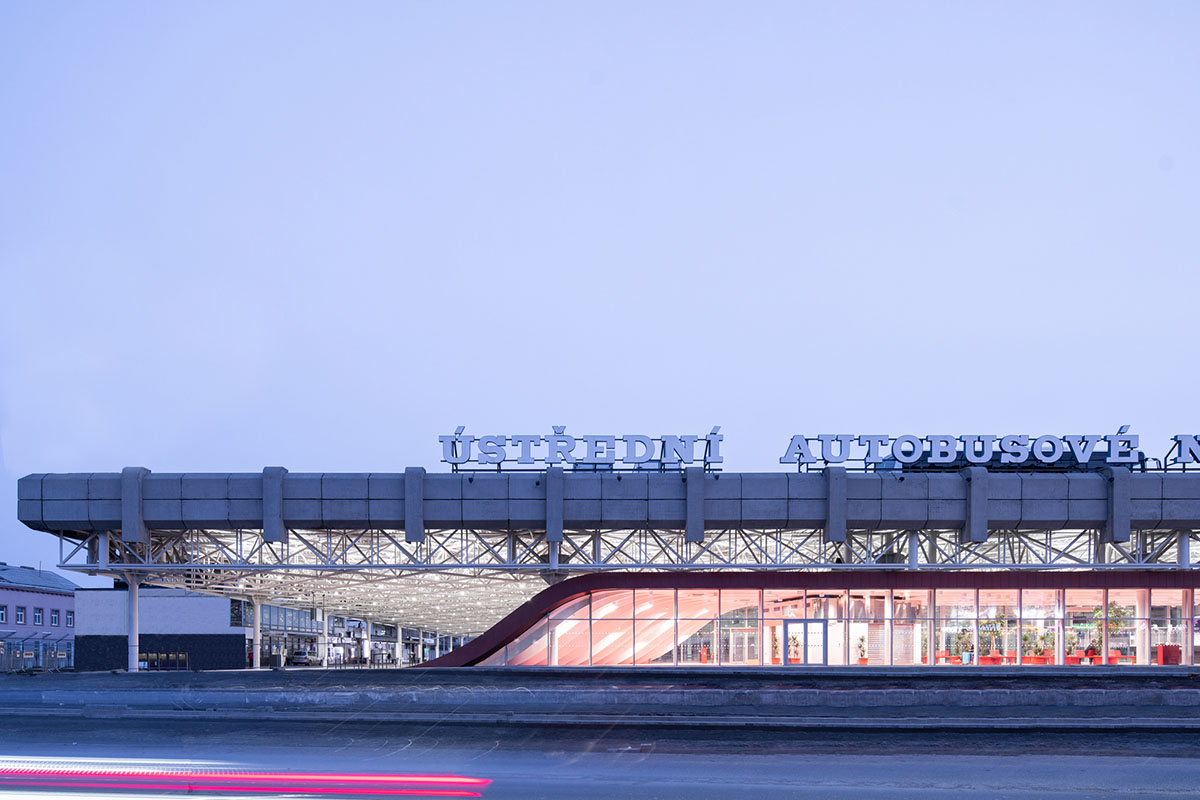
CHYBIK + KRISTOF Architects & Urban Designers has brought a new life into the brutalist Zvonarka Central Bus Terminal in Brno, Czech Republic, the studio has completed the redesign of Zvonarka Central Bus Terminal with modern touch and a functional entity according to current social needs.
The project was initiated by the architects in 2011 and the redesign of Brno’s Zvonarka Central Bus Terminal was aimed to bring light into the site’s original brutalist identity – and the studio's longstanding engagement in preserving architectural heritage.
The redesign of the project emphasized the station’s central role in the city and region’s sociocultural fabric, while the design inputs addressed the urgency to rethink the use of a decaying transportation hub and public space.

The architects intended to place transparency, and access into the heart of design, which is seen at the root of their design, however they rethought the functional entry of the bus terminal to meet the latest current needs.
"Receptive to the station’s central role in the city’s social fabric, the architects demonstrate their responsibility and commitment to driving constructive social change," said CHYBIK + KRISTOF.
Akin to the internationally renowned Hotel Praha and Transgas buildings in Prague, Brno’s Zvonarka Central Bus Terminal, built in 1988, has long been considered one of the notable remaining examples of the Czech Republic’s Brutalist architectural heritage.
Dominating much of post-war architecture, Brutalism or “béton brut” – referring to the exposed concrete architecture that simultaneously celebrates progressiveness and experimentalism – has long polarized architects and scholars alike, among whom CHYBIK + KRISTOF.
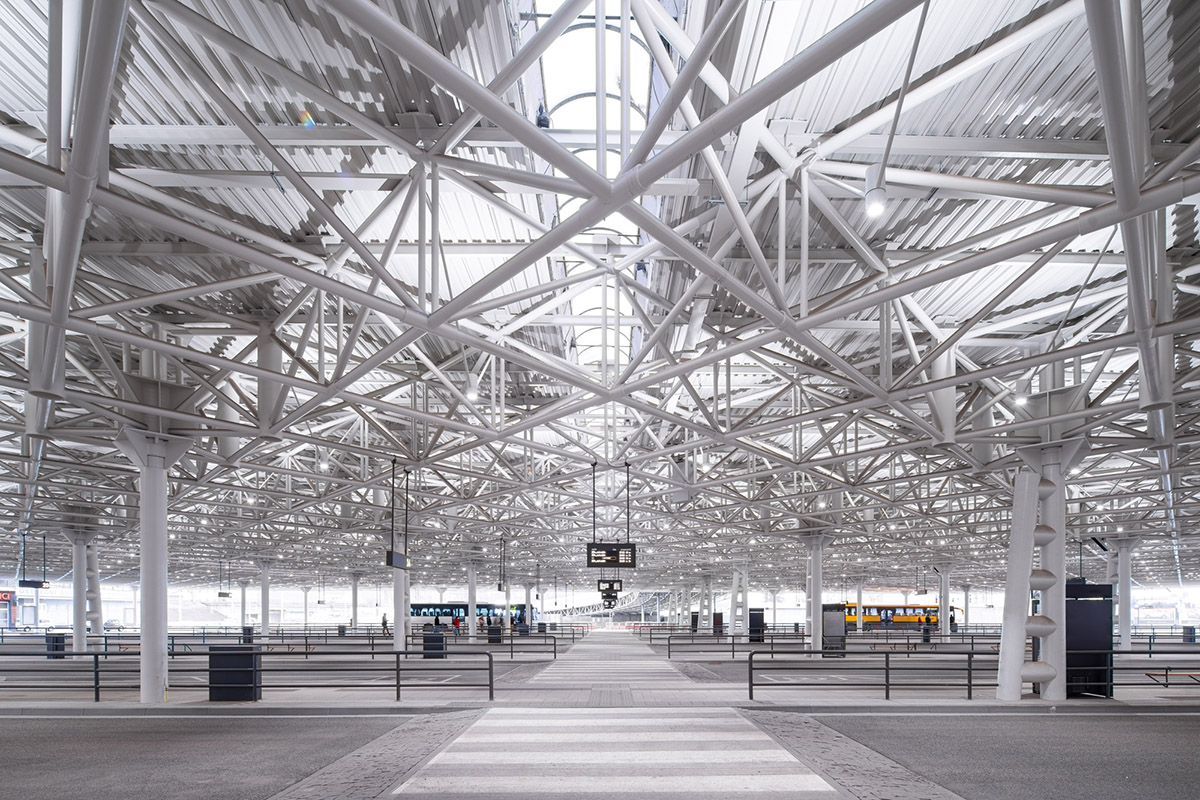
With many such structures demolished or threatened in recent years – among which the now demolished Hotel Praha (2014) and Transgas (2019), the controversial Robin Hood Gardens (2017) in London and the Burroughs Wellcome Building (2021) in the United States, CHYBIK + KRISTOF affirm their engagement for their protection, placing the Brutalist Zvonarka Bus Terminal building as a local case-in-point of such circumstances.
"Demolitions are a global issue," said co-founding architect Michal Kristof.
"Our role as architects is to engage in these conversations and demonstrate that we no longer operate from a blank page. We need to consider and also work from existing architecture – and gradually shift the conversation from creation to transformation."
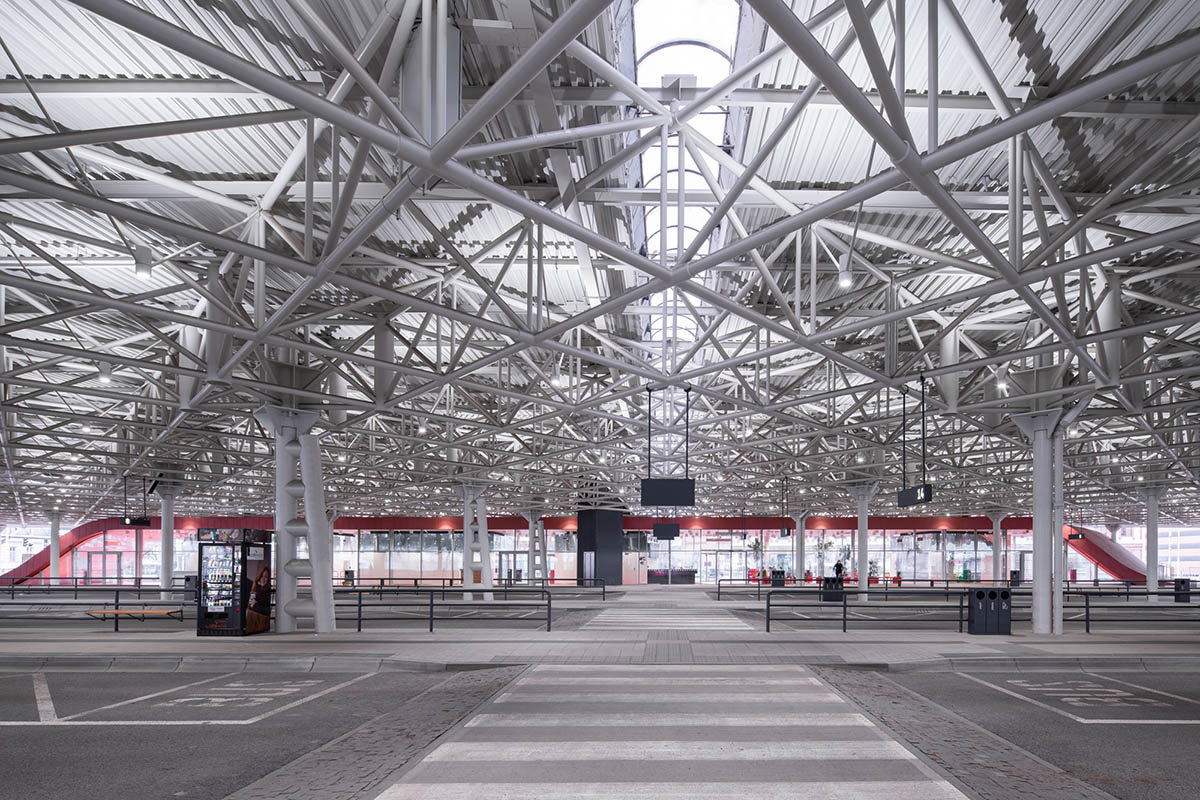
The Zvonarka Central Bus Terminal was designed in 1984 and built in 1988, the Zvonarka Central Bus Terminal has continuously acted as the region’s main bus station for intercity transport.
In 1989, the building was privatized, with only the first phases of construction complete, and resuming its role as a bus station. Recognized as a Brutalist heritage site, its high maintenance costs led to little upkeep, driving to its gradual deterioration.
In 2011, CHYBIK + KRISTOF grew aware of the station’s decaying conditions. Eager to advance a positive alternative to a seemingly irrecoverable space, the architects reached out to its private owners with an elementary redesign proposal.
"Social awareness" is one of the key design principles of CHYBIK + KRISTOF in conceiving projects, and the redesign of Zvonarka Central Bus Terminal mirrors CHYBIK + KRISTOF’s design approach in this sense.
First identifying the ongoing social dynamics, they engage with diverse stakeholders – architects, public entities and private partners, local and external.

Adopting a holistic sociocultural and technical approach, they ultimately bring forward a user-centered, conscious design – one that moves beyond the mere construction process.
Stressing the station’s role as the point of entry into and departure from the city, they outline the significance of this transitional space, as transportation hubs increasingly come to act as windows onto cities.
All-the-while conceiving a functional redesign receptive to users’ needs, the architects cultivate the station’s essence as the city’s social nerve, envisioning how to further integrate it in the surrounding urban fabric and invite new social dynamics within it.
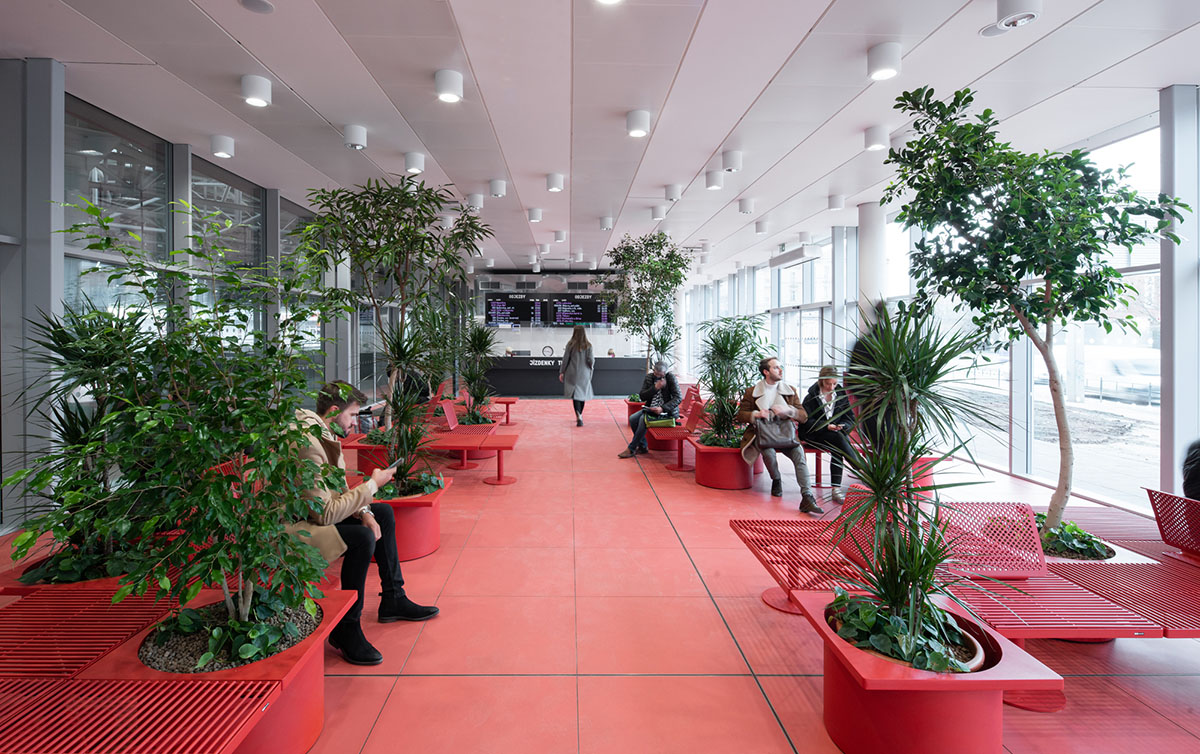
"The role of the architect begins prior to the first sketches. Fully understanding the social dynamics at play in every project is at the heart of our practice," stated co-founder Ondrej Chybik.
"With this in mind, we as architects assume a crucial role in both the inception and materialization of a project – we are here at the beginning, in the middle, and at the end. Instigating a dialogue; resolving the existing shortfalls – social, economic, cultural, and deeply political; bringing forward innovative and inclusive solutions – it is our responsibility to step out of our studios and onto the streets," added Chybik.
The architects took "transparency" at the heart of their new design. Paying homage to its original architect Radúz Russ, they proudly exposed the station’s characteristically raw Brutalist structure, contrasting its angularity with an organic wave that mirrors the seamless flow of vehicles and passengers. They also turn to structural transparency, removing walls and favoring light as evocative of access, safety and comfort.

Following the original square floorplan, they reconfigured the main hall as an open structure devoid of walls. A two-sided roof, the inner space houses the individual bus stops while the outer area serves as a parking space for buses.
The team eagerly wanted to open up the terminal onto the city, the architects removed the temporary structures added in the 1990s and built a second entry to the station at street level.
Adding new light fixtures onto the main worn-down structure, which they repaint in white, they introduced a new information office, ticketing and waiting areas, platforms, and an orientation system accessible to the disabled.
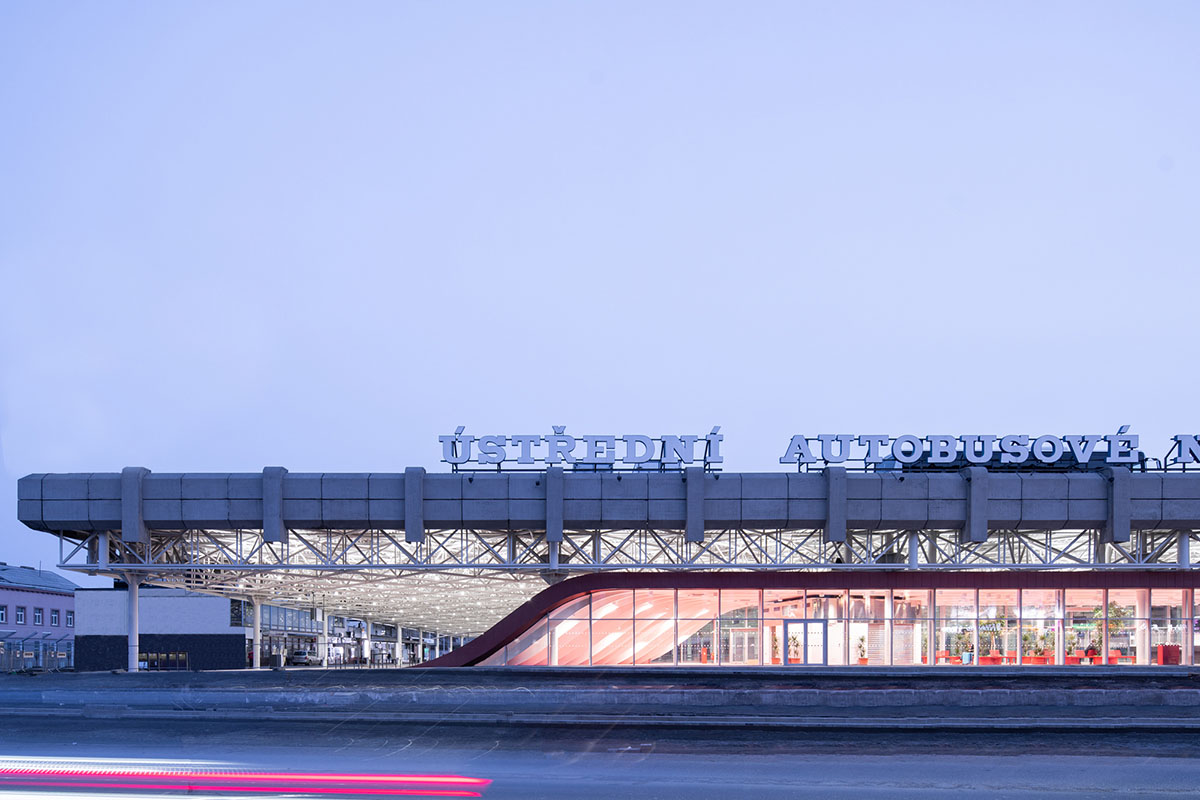
Through this design, CHYBIK + KRISTOF transformed the building into a dynamic, functional and intrinsically social hub, channeling an unrestricted flow of locals and passengers alike.
"While our familiarity with the city of Brno proved to be a real asset, our engagement for this project resonates with architects internationally," said Ondrej Chybik and Michal Kristof.
"Beyond a functional concern, the architects’ role is rooted in understanding, deconstructing and responding to the shortcomings that often form our social structures – that is, our role is intrinsically social, based on ‘people.’ Ultimately, by revisiting the past, engaging with the present and projecting to the future, architects can, and must, be catalysts for change," they added.
CHYBIK + KRISTOF was founded by Ondřej Chybík and Michal Krištof in 2010. The studio previously completed the 19th century greenhouse in Brno with steel lattice and completed Manifesto Food Market in Smichov.
All images © Alex Shoots Buildings
> via CHYBIK + KRISTOF
